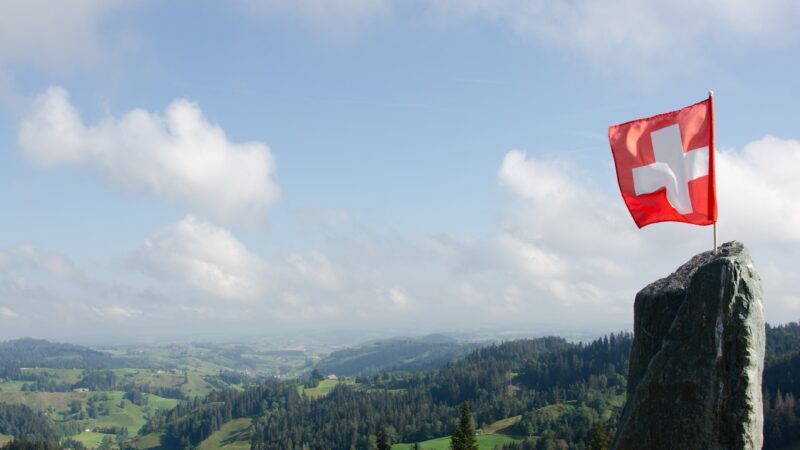The new Defence Secretary, Grant Shapps, in his first newspaper interview since taking up the position, called for British weapons manufacturers to set up shop in Ukraine and revealed discussions with Zelensky about the Royal Navy getting more involved in the Black Sea.
The biggest potential escalation was his suggestion that British military instructors be moved into Ukraine.
“I was talking today about eventually getting the training brought closer and actually into Ukraine as well.”
As of yet, the UK and allies have avoided a formal military presence in the conflict due to the risk of direct conflict with Russia, so these were major policy changes being floated.
The same day, former Russian President and now deputy chairman of the country’s influential Security Council, Dmitri Medvedev, posted on Telegram that such moves bring World War Three closer.
‘[This will] turn their instructors into a legal target for our armed forces… understanding perfectly well that they will be ruthlessly destroyed. And not as mercenaries, but namely as British NATO specialists.’
Just over two hours later, the Prime Minister had pushed back at the Defence Secretary’s comments telling reporters on the first day of his party conference there were no immediate plans for this:
“What the defence secretary was saying was that it might well be possible one day in the future for us to do some of that training in Ukraine. But that’s something for the long term, not the here and now. There are no British soldiers that will be sent to fight in the current conflict.”
Leaving aside Mr Shapps’ questionable ministerial record and lack of obvious suitability for his brief, this incident (which was conveniently brushed under the carpet of the Tory conference) raises some serious questions about decision making at the MoD.
Was this interview cleared with No. 10 and if so, are they now backtracking? Or did the Defence Secretary go off script and unsuccessfully try to use his own initiative?
Or was this government floating an idea and testing the waters? If so, they got their answer quick.
The sight of British soldiers returning in body bags in an election year might not be a big vote winner.
Government’s decision to ramp up support for Ukraine and double down on its all-or-nothing position comes as cracks in the alliance grow wider by the day.
As all this was unfolding, Slovakia was electing its next parliament, with an anti-Ukraine party winning the election. The country has already halted military aid to Kiev, joining the Hungarians.
Just two weeks ago, one of Ukraine’s strongest allies, compared it to ‘a drowning man’.
A dispute over grain exports got so bad that the Polish president said:
‘The drowning man is really clinging to anything available and it is somehow what the situation between Poland and Ukraine is like today… it is clinging to anything available. Can we hold grudges against them? Of course, we can. Do we have to act in a way to protect ourselves from being hurt by a drowning one, of course, we have to act in a way to protect ourselves from being harmed by the drowning one, because once the drowning man hurts us, it will not get help from us.’
This was quickly followed by the Polish prime minister announcing: “We are no longer transferring weapons to Ukraine because we are now arming Poland with more modern weapons.”
Next week will see Poland have its own elections, and like Slovakia, an anti-Ukraine party is doing very well in the polls, with hopes to be kingmaker.
The United States is not immune from political division over the conflict, with various presidential candidates from Donald Trump and Vivek Ramaswamy to Robert F Kennedy Jr calling for its end.
Domestic political pressure and war fatigue aren’t the only factors creating friction between Western capitals. After 20 months of being told victory is round the corner, reality is starting to bite.
This week NATO’s most senior military official told the Warsaw Security forum the West is running out of ammunition for Ukraine. Admiral Rob Bauer said: “The bottom of the barrel is now visible.”
UK Defence Minister James Heappey also added that the West’s stockpiles were ‘looking a bit thin’.
This might explain the eagerness to have British weapons manufacturers ramp up production by setting up factories in Ukraine, but it does not explain the stubborn continuation of a failed strategy.
A policy should be judged by its results and as of writing, Ukraine has lost hundreds of thousands of its young men, millions more have fled, its economy is decimated, and its state is on life-support.
Russia, meanwhile, has weathered the sanction-induced storm which turned out to be a strong breeze rather than the predicted tornado. Its economy has not only held up but is on track to grow.
NATO’s eastern flank, be it Turkey, Hungary, now Slovakia and potentially Poland, is already publicly disagreeing and diverging from the Washington-London line, and this is likely to continue.
And the Washington line, as we have only seen too well over the last decade, is liable to change rapidly depending on the outcome of the next election.
So, can Britain afford to continue its Johnsonian zeal for trying to fight Russia down to the last Ukrainian, or is it time to take back control of our foreign policy and start thinking seriously about Europe’s long-term security architecture?
I would hope that the government concerned with ‘long-term decisions for a brighter future’ would be reassessing its policy.



